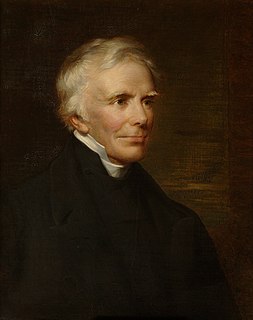A Quote by John Keble
The watchful mother tarries nigh
Though sleep have closed her infant's eye,
For should he wake, and find her gone.
Related Quotes
The good enough mother, owing to her deep empathy with her infant, reflects in her face his feelings; this is why he sees himselfin her face as if in a mirror and finds himself as he sees himself in her. The not good enough mother fails to reflect the infant's feelings in her face because she is too preoccupied with her own concerns, such as her worries over whether she is doing right by her child, her anxiety that she might fail him.
My wife, my Mary, goes to her sleep the way you would close the door of a closet. So many times I have watched her with envy. Her lovely body squirms a moment as though she fitted herself into a cocoon. She sighs once and at the end of it her eyes close and her lips, untroubled, fall into that wise and remote smile of the Ancient Greek gods. She smiles all night in her sleep, her breath purrs in her throat, not a snore, a kitten's purr... She loves to sleep and sleep welcomes her.
But the last one: the baby who trails her scent like a flag of surrender through your life when there will be no more coming after - oh, that's love by a different name. She is the babe you hold in your arms for an hour after she's gone to sleep. If you put her down in the crib, she might wake up changed and fly away. So instead you rock my the window, drinking the light from her skin, breathing her exhaled dreams. Your heart bays to the double crescent moons of closed lashes on her cheeks. She's the one you can't put down.
It is as great a crime to leave a woman alone in her agony and deny her relief from her suffering as it is to insist upon dulling the consciousness of a natural mother who desires above all things to be aware of the final reward of her efforts, whose ambition is to be present, in full possession of her senses, when the infant she already adores greets her with its first loud cry and the soft touch of its restless body upon her limbs.
Little Lotte thought of everything and nothing. Her hair was as golden as the sun's rays, and her soul as clear and blue as her eyes. She wheedled her mother, was kind to her doll, took great care of her frock and her red shoes and her fiddle, but loved most of all, when she went to sleep, to hear the Angel of Music.
Occasionally, on screen, Barbara [Stanwyck] had a wary, watchful quality about her that I've noticed in other people who had bad childhoods; they tend to keep an eye on life because they don't think it can be trusted. After her mother was killed by a streetcar, she had been raised in Brooklyn by her sisters, and from things she said, I believe she had been abused as a child. She had lived an entirely different life than mine, that's for sure, which is one reason I found her so fascinating. I think her early life was one reason she had such authenticity as an actress, and as a person.
I grabbed Aunt Prue's tiny hand, her fingers as small as bare twigs in winter. I closed my eyes and took her other hand, twisting my strong fingers together with her frail ones. I rested my forehead against our hands and closed my eyes. I imagined lifting my head up and seeing her smiling, the tape and tubes gone. I wondered if wishing was the same thing as praying. If hoping for something badly enough could make it happen.
As her sons have seen her: the mother in patriarchy: controlling, erotic, castrating, heart-suffering, guilt-ridden, and guilt-provoking; a marble brow, a huge breast, an avid cave; between her legs snakes, swamp-grass, or teeth; on her lap a helpless infant or a martyred son. She exists for one purpose: to bear and nourish the son.
Her [Eleanor Roosevelt] father was the love of her life. Her father always made her feel wanted, made her feel loved, where her mother made her feel, you know, unloved, judged harshly, never up to par. And she was her father's favorite, and her mother's unfavorite. So her father was the man that she went to for comfort in her imaginings.
Mr Thornton would rather have heard that she was suffering the natural sorrow. In the first place, there was selfishness enough in him to have taken pleasure in the idea that his great love might come in to comfort and console her; much the same kind of strange passionate pleasure which comes stinging through a mother's heart, when her drooping infant nestles close to her, and is dependent upon her for everything.






































